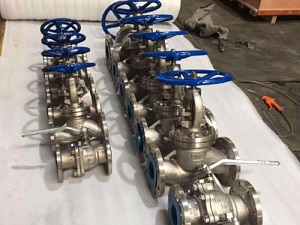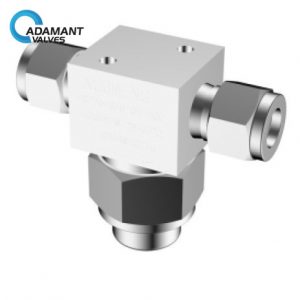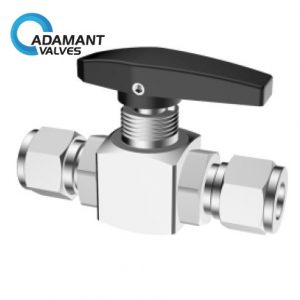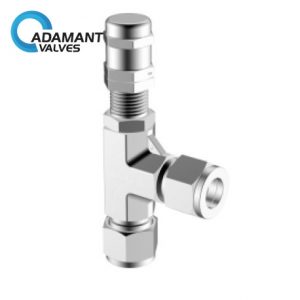The Features of Duplex Stainless Steel Shutoff Valves

The excellent performance of an all-forged duplex stainless steel sanitary shutoff valve is determined by the performance of the materials and the structural characteristics of the valve itself. So, let’s first take a look at the characteristics of the duplex steel.
The so-called “duplex stainless steel” is a kind of steel in which the ferrite phase and the austenite phase each accounts for half of the solid solution.
Usually, the small amount of phase is no less than 30%. Since there is a ferrite phase and austenite phase in the duplex stainless steel, it has relatively high strength and resistance to chloride stress corrosion associated with ferritic stainless steel, and excellent toughness and welding performance associated with austenitic stainless steel.
The features of all-forged duplex stainless steel shutoff valves:
1. The valve uses overall forging or forged welding structure and passes the non-destructive testing. It undergoes solid solution processing. The composition of the materials is fine. The product’s appearance is good.
2. The valve sealing is spray-welded hard alloy. Nickel-based solder powder, Stellite alloy, tungsten carbide, and other materials can be spray-welded. The hardness can be as high as HRC65. It has excellent wear and corrosion resistance, which improves the service life of the valve.
3. Due to the characteristics of duplex steel material itself, the valve has a strong resistance to hydrogen sulfide and chloride corrosion.
4. Considering the requirement on the strength of sanitary ball valve stem caused by increased opening and closing torque after the high-temperature deposition of the water-coal slurry medium, when designing duplex steel ball valve stems, 1740H deposition hardened stainless steel is used. This material can achieve a pretty high strength after the deposition hardening process, which meets the real-life requirements of valves.
5. All-forged duplex stainless steel shutoff valves use fixed balls. The force on the sealing pairs by the medium is significantly smaller than that of the floating ball, leading to decreased opening and closing torque.
The valve seat is designed to be a closed structure, which can effectively prevent the spring failure caused by deposition and fouling. The sealing ring uses flexible graphite or plastic alloy. The material has a very good sealing performance and high temperature-resistant performance. (flexible graphite can be up to 800 degrees Celsius and plastic alloy can reach 3000 degrees Celsius) The valve stem uses deposition hardened stainless steel.




